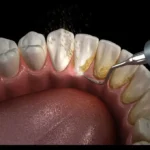Preparing children for a productive academic year goes well beyond new clothes and school supplies. Parents are increasingly recognizing the vital role of strong oral health in their child’s educational journey. Implementing back-to-school dental care ensures students are not distracted by discomfort or absences due to preventable dental issues.
This guide provides practical and parent-friendly advice to help your child achieve the best possible oral health outcomes before school begins. Let’s dive deep to know more!
Table of Contents
ToggleThe Importance of a Back-to-School Dental Checkup Up
Scheduling a back-to-school dental checkup is a proactive step that sets a healthy foundation for your child’s school year. Dental problems are not only physically painful, but they also interfere with a child’s concentration and overall well-being.
According to the report, children dealing with untreated dental issues are three times more likely to miss school days compared to their peers. Missing valuable instruction time can have a ripple effect on academic performance, social participation, and even self-esteem.
A thorough dental checkup before school starts serves several purposes:
- Early Detection and Prevention: Dentists can spot cavities, gum inflammation, and even orthodontic problems before they progress.
- Timely Treatment: Addressing small concerns promptly prevents them from escalating into painful and costly emergencies during the busy school year.
- Personalized Education: These visits are an opportunity for dentists to teach both parents and children about best oral hygiene practices, diet, and the importance of maintaining routines even during stressful or busy periods.
Parents are encouraged to treat dental checkups as non-negotiable, just like physical exams or immunizations, to ensure learning is never interrupted by avoidable oral health problems.
7 Key Back-to-School Dental Tips for Parents
Every parent wants their child to start school feeling healthy and confident. Following proven back-to-school dental tips will promote good habits and prevent avoidable problems throughout the academic year. Here’s how to integrate solid oral health into your back-to-school routine:
1. Re-establish daily dental care routines
Summer break often means later bedtimes and disrupted routines. Set a positive tone for the school year by restoring regular oral hygiene habits:
- Ensure your child brushes their teeth twice each day with fluoride toothpaste—once after breakfast and again before bed.
- Supervise younger children to help them reach all tooth surfaces and to encourage consistent brushing duration (at least 2 minutes each time).
- Introduce flossing as part of the daily routine, explaining its role in cleaning between teeth where brushes can’t reach.
2. Replace oral care products for a fresh start
Worn brushes or expired supplies can reduce cleaning effectiveness. Begin each school year with these simple updates:
- Replace toothbrushes or electric brush heads every three to four months, or immediately after your child recovers from an illness.
- Choose soft-bristled brushes for gentle, thorough cleaning.
3. Pack healthy, tooth-friendly snacks and lunches
Balanced nutrition supports both general and oral health. Encourage snacks and meals that benefit your child’s teeth and gums:
- Opt for fresh fruits (such as apple slices or grapes), crunchy vegetables (like carrots and celery), cheese sticks, and plain yogurt.
- Avoid sticky candies, sugary gummies, or drinks with added sugar.
- If your child wants a sweet treat, include it in a main meal rather than as a snack to limit the exposure time of sugars to their teeth.
4. Encourage proper hydration with water
Dehydration can contribute to dry mouth, which raises the risk of cavities. Make water the default beverage for your child:
- Pack a spill-proof, reusable water bottle in their backpack and remind them to refill it during the day.
- Discourage frequent consumption of juice, soda, or sports drinks, which can leave sugars and acids on tooth surfaces.
5. Schedule routine dental visits as a family habit
Children and teens should see a dentist twice a year for cleaning and an exam. Making the dental checkup a regular event helps avoid last-minute scrambles and missed instructions during the school year.
- Schedule appointments during school breaks if possible, or choose after-school hours for convenience.
- Ask your dentist to review important oral health milestones and discuss any special needs (such as orthodontics) during these visits.
6. Protect active kids with mouthguards and guidance on appliances
If your child is involved in sports or physical activities:
- Invest in a custom-fit mouthguard to shield teeth from accidental impacts and injuries.
- For kids with braces or other dental appliances, ask your dentist about special cleaning tools and review instructions for care, especially for removable retainers or aligners.
7. Motivate kids with positive reinforcement
Building lifelong habits is easier when children feel involved and rewarded:
- Use sticker charts, brushing calendars, or fun timers to make tooth care enjoyable.
- Show your own commitment by brushing and flossing together, and praise children for sticking to routines.
Common Pediatric Dental Concerns Parents Should Watch For
Understanding typical dental issues empowers parents to act early and seek help if needed:
- Tooth Decay: Still the most common chronic condition in US children, with about 42% experiencing decay between the ages of 2 and 11. Risk rises with frequent snacking and sugary drinks.
- Gum Inflammation and Sensitivity: Red, swollen, or bleeding gums could signal early gum disease or brushing technique issues.
- Persistent Bad Breath: Often due to missed brushings, poor flossing, or undiagnosed dental problems.
- Teeth Grinding (Bruxism): Stress from starting a new school year can increase grinding or jaw clenching; consult your dentist if you notice symptoms.
- Orthodontic Concerns: Monitor for crowding, protruding, or misaligned teeth, as early intervention often leads to better outcomes.
Promptly addressing any concerns with a dental professional can save time, discomfort, and expenses later in the year.
Essential Back-to-School Dental Recommendations at a Glance
Step | Recommended Action | Frequency |
Dental exam | Schedule a routine check-up and cleaning prior to school start | Every 6 months |
Replace toothbrush | Buy new brushes/heads (soft-bristle preferred) | Every 3-4 months |
Brushing teeth | Brush with fluoride toothpaste; supervise young children | At least 2x per day |
Flossing teeth | Clean between teeth with floss or flossers | Once daily |
Healthy snacking | Prioritize fruits, vegetables, cheese, and yogurt | Daily |
Hydration | Send a water bottle and encourage water between meals | Throughout the day |
Sports mouthguard | Wear during athletic and contact activities | As required |
Track oral care | Use calendars, stickers, and rewards to reinforce habits | Daily |
How to Handle Dental Anxiety and Special Needs?
For many children, trips to the dentist can be intimidating. Parents play a key role in fostering a sense of security and resilience about oral healthcare. To ease anxiety:
- Choose pediatric dentists trained in creating welcoming, child-friendly environments.
- Discuss upcoming visits in positive, reassuring terms, focusing on the benefits rather than potential discomfort.
- For children with sensory sensitivities or developmental challenges, communicate specific needs to your dental provider ahead of time so that accommodations can be made.
Why Do Schools Need Dental Records?
You may wonder, why do schools need dental records? The answer is rooted in both public health priorities and the recognition that oral health is fundamental to a student’s ability to participate fully in school.
Many US states require dental records or proof of a dental exam before starting specific grade levels, most often for kindergartners or students entering elementary school. The reasons are clear and well-documented:
- Disease Prevention: Untreated dental conditions can hinder a child’s ability to chew, speak, and focus. Schools use dental records to confirm that students are free from significant oral health problems that could impact learning.
- Compliance with Health Regulations: States such as California, Illinois, and New York mandate dental forms as part of school registration to protect both individual students and the broader community. Proof of a dental checkup is evaluated similarly to required vaccinations.
- Supporting Community Health: Aggregating dental data enables schools and health authorities to identify trends, target resources, and advocate for improved pediatric oral health programs.
The dental exam required for school is comprehensive but straightforward. Dentists check for tooth decay, gum inflammation, signs the child is having trouble eating or speaking and note any issues that could affect participation in the classroom. X-rays are taken only when necessary, and most forms can be completed at the time of a routine dental visit. Families are advised to ask their local school districts about required forms and deadlines well in advance.
Meeting School Requirements: How to Prepare Dental Records?
If your school district requests dental forms, avoid last-minute stress by:
- Contacting your school’s main office or website for exact requirements and submission deadlines.
- Scheduling the back-to-school dental checkup early ensures the dentist has sufficient time to complete necessary paperwork.
- Keeping a personal copy of all health records and dental forms for future reference.
Conclusion
A new academic year is the perfect opportunity to reinforce positive health habits. By following these expert-driven back-to-school dental tips, scheduling timely check-ups, supporting healthy eating and drinking habits, and maintaining diligent at-home routines, parents can ensure their children are physically comfortable and ready to succeed in the classroom.
A simple focus on oral health can mean fewer missed days, improved concentration, brighter smiles, and a greater sense of well-being for students. Make back-to-school dental care a family tradition that signals a fresh, healthy start every year.










